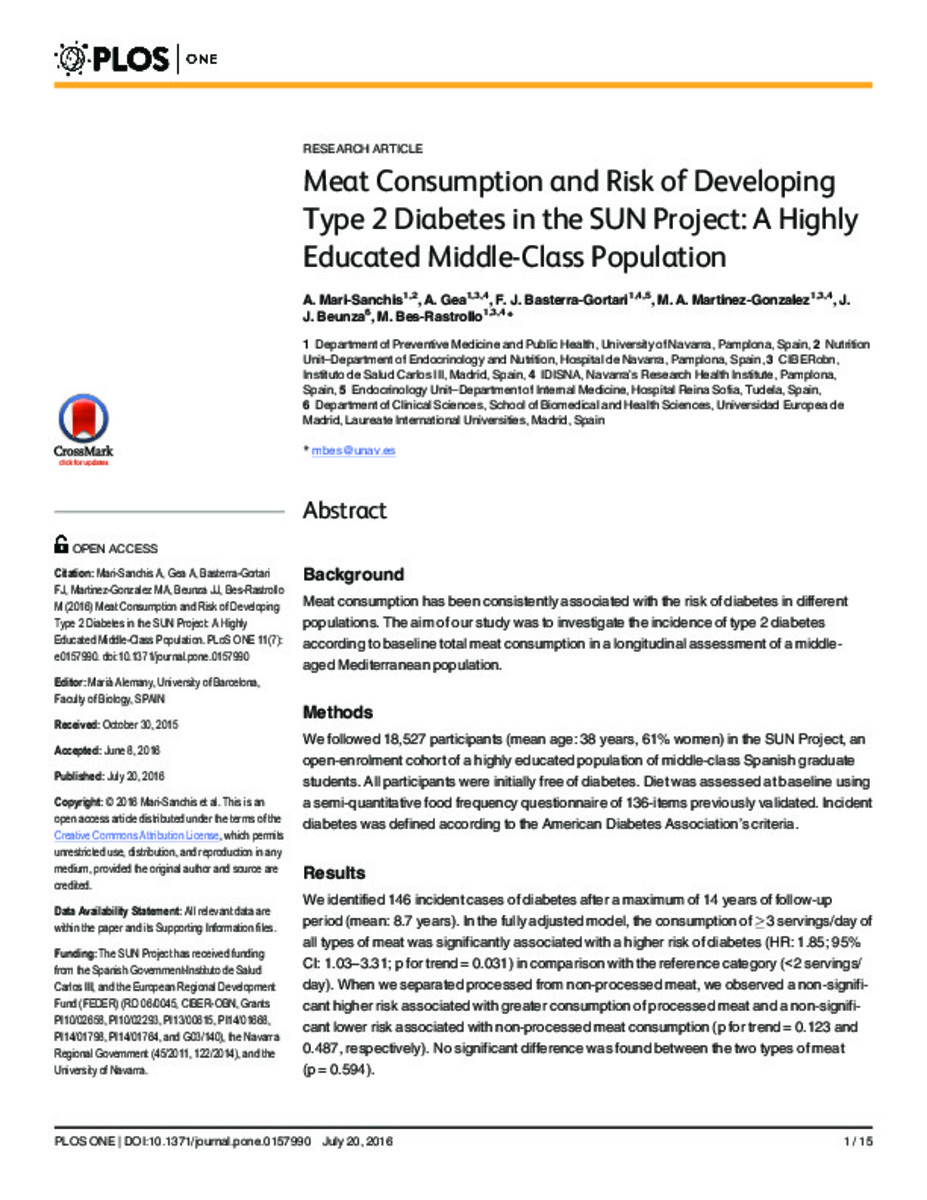Meat Consumption and Risk of Developing Type 2 Diabetes in the SUN Project: A Highly Educated Middle-Class Population
Palabras clave :
Materias Investigacion::Ciencias de la Salud::Salud pública
Fecha de publicación :
2016
Editorial :
Public Library of Science
Nota:
© 2016 Mari-Sanchis et al. This is an open access article distributed under the terms of the Creative Commons Attribution License
, which permits unrestricted use, distribution, and reproduction in any
medium, provided the original author and source are credited.
Cita:
Mari-Sanchis A, Gea A, Basterra-Gortari FJ, Martinez-Gonzalez MA, Beunza JJ, Bes-Rastrollo M. Meat Consumption and Risk of Developing Type 2 Diabetes in the SUN Project: A Highly Educated Middle-Class Population. PLoS ONE; 2016 Jul; 11(7): e0157990.
Aparece en las colecciones:
Estadísticas e impacto
0 citas en

Los ítems de Dadun están protegidos por copyright, con todos los derechos reservados, a menos que se indique lo contrario.








